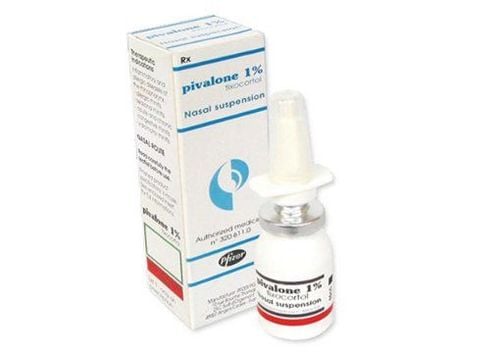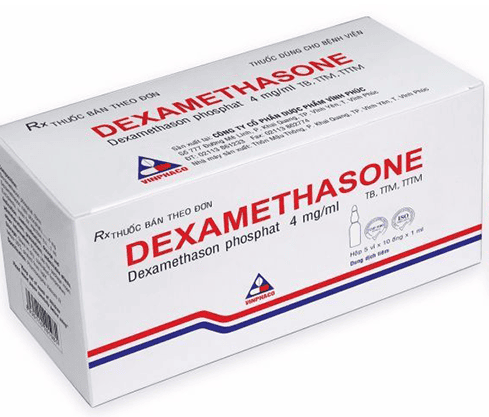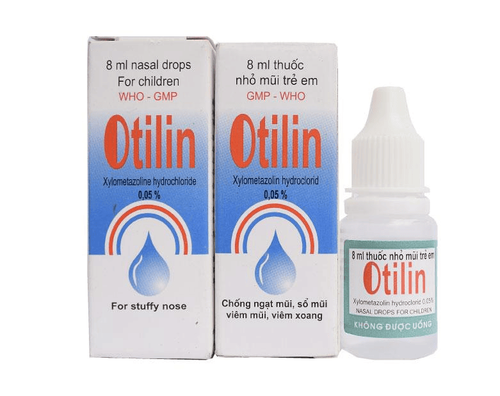This is an automatically translated article.
The article is professionally consulted by Specialist Doctor II Nguyen Van Thai - Doctor of Otolaryngology - Department of Otolaryngology and Head and Neck Surgery - Vinmec Danang International General HospitalVasomotor rhinitis is a condition in which the parasympathetic nervous system in the nasal mucosa overreacts, manifested through symptoms similar to rhinitis such as: runny nose, sneezing, stuffy nose... Vascular often has no obvious cause, symptoms can be long-lasting but not life-threatening.
1. What is vasomotor rhinitis?
Vasomotor rhinitis is a respiratory disease caused by external agents (bacteria, molds, weather...) that create a reaction between the nervous and sympathetic systems in the nasal mucosa, causing symptoms of irritation. Nasal reactions such as sneezing, stuffy nose, runny nose... Vasomotor rhinitis is also known as idiopathic rhinitis because this is a disease with no clear cause, unable to find specific inflammatory cells. through tests such as subcutaneous allergen injections, blood tests for IgE, even cytology tests.Symptoms of vasomotor rhinitis are similar to allergic rhinitis, but can be distinguished by typical signs such as less itchy nose and sneezing, more stuffy and runny nose. In some cases, there is no or very little stuffy nose, runny nose is the main cause.
2. Signs of vasomotor rhinitis

Signs of vasomotor rhinitis include: Nasal congestion; There is fluid flowing into the sinus system; Have a runny nose; Sneeze; Runny nose...
In some cases, vasomotor rhinitis without prompt care can lead to superinfected vasomotor rhinitis, through the following manifestations: Symptoms become severe more and do not respond to drug therapy; The body has side effects from the drug treatment...
When noticing unusual signs of health, the patient needs to go to an ENT specialist for examination and treatment advice, by the local body. each person is different.
3. Factors affecting vasomotor rhinitis
Factors that cause vasomotor rhinitis include:Environment: Environmental pollution, dust, smoke, changes in temperature and humidity. Climate: The climate changes from hot to cold, especially dry weather causes sudden changes in air humidity, which easily irritates the nasal mucosa. Endocrine disorders: Some hormonal and metabolic disorders such as: Using birth control pills; Hormonal changes during pregnancy, menstruation, other hormone conditions such as hypothyroidism. Medicines: Some drugs can cause vasomotor rhinitis such as high blood pressure medications, psychiatric drugs, pain relievers... Other factors: Bad smell, smoke, perfume, eating food Hot flashes, emotional changes (crying...) or viral infections are all possible triggers for vasomotor rhinitis.

4. Subjects prone to vasomotor rhinitis
Vasomotor rhinitis in particular and allergic rhinitis in general are very common diseases that can affect patients of all ages. However, women are twice as likely to develop vasomotor rhinitis than men. Factors that increase the risk of vasomotor rhinitis include:Age: Vasomotor rhinitis usually occurs in people over 20 years of age. People are often exposed to stimulants, dust, gases and tobacco smoke. Pregnancy: hormonal changes, rhinitis can cause nasal congestion more often when you are pregnant or menstruating. Medication use: Long-term use of certain medications, including nasal sprays, can make nasal congestion worse, a condition known as reversible congestion. Stress: People who are constantly under stress, emotional stress have a high risk of rhinitis. Health problems: Some chronic diseases or viral diseases such as hypothyroidism syndrome, chronic fatigue, colds, flu, etc. can affect and worsen vasomotor rhinitis. The treatment of vasomotor rhinitis is equivalent to the treatment of allergic rhinitis such as the use of anti-inflammatory nasal sprays. In case of heavy congestion, use more vasoconstrictor anti-stuffy drugs, specific anti-rheumatic drugs... In case of severe superinfected vasomotor rhinitis, surgery is required to reduce the volume of the lower nasal peduncle. If the drug does not respond, surgery may be necessary to remove the Vidian nerve.
In order to avoid complications due to improper use of the drug, when there are manifestations of vasomotor rhinitis or allergic rhinitis, the patient should be examined by an Ear - Nose - Throat specialist.
Otolaryngology - Vinmec International General Hospital is an address specializing in the examination and treatment of sinusitis as well as common ENT diseases, head and neck tumors, congenital malformations in the ear area. nasopharyngeal surgery by common surgical methods such as surgery, microscopic or endoscopic tympanic membrane patching, fistula removal surgery, Bondy surgery, nasopharyngeal aerosolization, nasal constriction, nasal coil burning... with the system modern nasopharynx Karl Storz, Computerized tomography (CT Scan) with 640-slice CT Scan for early and accurate diagnosis.
Please dial HOTLINE for more information or register for an appointment HERE. Download MyVinmec app to make appointments faster and to manage your bookings easily.














